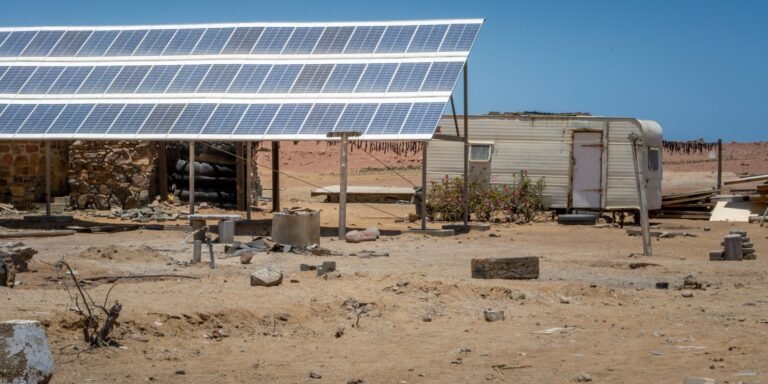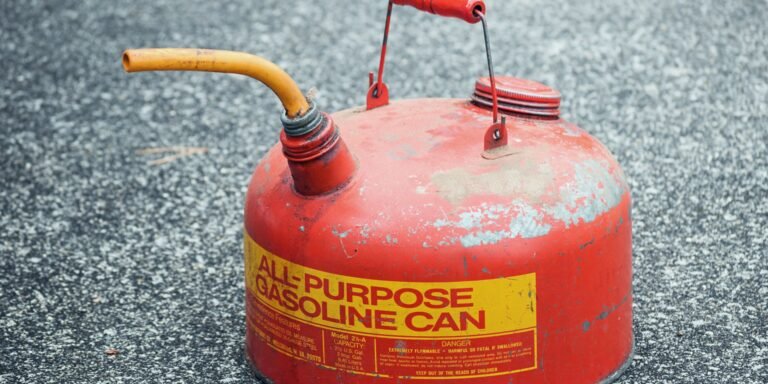Emergency Foods You Should Keep In Your Car
This post may contain affiliate links, full disclosure here.
It can be difficult to select what food and beverages to have in your car in case of an emergency. It’s no surprise that deciding what to keep and what to discard is difficult with so many options available.
Because there is only so much space within your vehicle, you will need to prepare ahead and pick what is truly important. So, for your peace of mind, we’ve gathered a few essentials that won’t take up too much room.
Without further ado, let’s get right in and discover what you’ll need in the event of an emergency.
See also: Top 20 Barter Items to Stockpile
Why Should You Store Food In Your Car
While you may not require extra snacks on a daily basis, you will greatly benefit on the days when you do. Long road trips, being stranded on the side of the road, being stopped in traffic, or even needing an extra snack after a long walk can all benefit from emergency food.
Emergency Foods You Should Keep In Your Vehicle
Water
This is the single most crucial item in any emergency food supply, and you should have plenty of it. You should plan for at least 3 days of drinking water, depending on the amount of space available in your vehicle.
It is best to get bottled still water that is still sealed and has a lengthy shelf-life. This will ensure that your water does not get contaminated and unfit to drink while in storage.
Then there’s the question of container size: should you buy a single huge container or a set of little containers? Smaller bottles of water are easier to manage, and each person can have his or her own bottle.
These bottled water can be purchased in 24-packs or even 40-packs, depending on how much space you have.
Protein Bars
This is a good food item to have on hand in an emergency, so keep some in your vehicle’s emergency bug-out bag. It’s high in protein, which you’ll need if you want to stay in good physical shape throughout a disaster.
It’s a tiny foodstuff with a big nutritional punch. Because of its modest size, it can be easily stored and saves space in your vehicle.
These protein bars are available in huge quantities, such as 18-packs or even larger quantities. This will provide you the assurance and peace of mind that you have at least one healthy food item on hand in case of an emergency.
Salt and Spices
It may appear to be a waste of space, but in an emergency, you will forget the most vital things, and salt, as well as other spices to make life more tolerable, are essential.
If you have good-tasting food on hand in an emergency, it will substantially improve your situation. So, even if it’s just to get your mind in the proper place, having the right spices on hand is critical.
You simply need small containers for salt and spices that can close effectively to keep them in, and they should be lightweight and robust. You will only need a few varieties of spices for your emergency stockpile to enrich the cuisine you prepare.
Powdered Coffee
Coffee is an excellent thing to keep in your emergency kit so that you can have at least one cup of coffee in the morning. This will assist you in regaining control of your attitude so that you can organise your day.
Most of us can’t think straight unless we have that first cup of coffee in the morning, and this is especially true in an emergency where you need to keep your wits about you.
Coffee comes in little sachets that may be purchased in bigger quantities and takes up little space. If you like coffee with milk, some of these sachets are available as a pre-mix of coffee with powdered milk.
Breakfast Bars
These bars come in a variety of flavors and come in a little package that won’t take up too much room. If you need to keep moving in the event of a crisis, it will save you time not to cook breakfast.
They’re convenient to consume on the go and are high in nutrients to help you maintain your strength. These practical breakfast bars are also available in bigger quantities, so buying in bulk might save you money.
Fortunately, you don’t have to keep the entire pack of 32 or whatever quantity is provided. However, the number of people you wish to keep fed in the event of an emergency will determine this.
Canned Veggies
These are critical to have on hand in your emergency food supply, and you’ll need to make room for them. Fresh fruits and vegetables may not be available during an emergency, but there is no better method to keep veggies fresh for a long time than in the cans in which they are packaged. To keep the contents safe, the tins are tough enough to resist a lot of handling and the toughest of situations.
The main disadvantage of canned veggies is that they are heavy and take up a lot of storage space. It’s also tough to know what kinds of fruits and veggies to keep on hand in case of an emergency.
Expiration dates are something to keep in mind if you wish to keep anything in your vehicle’s emergency food store. The majority of these canned fruits and vegetables will last for another year once they have passed their expiration date.
As previously stated, these cans are fairly substantial, so you’ll need to plan ahead to ensure you have a well-balanced meal. Vegetables and fruit that are low in sodium and sugar should be kept in the can.
Fortunately, canned fruits and veggies come in a variety of quantities, allowing you to prepare ahead of time for what you want to keep on hand. They are also available in greater numbers, allowing you to buy in bulk and save money.
Canned Meats
Small cans of tuna that are available in quantity are one of the greatest possibilities, and most of them come with easy-to-open pull-off lids, so you won’t need a can opener.
Corned beef is another wonderful option that comes in a variety of sizes for different numbers of people, is easy to open without the use of a can opener, and comes in greater quantities.
However, just like canned fruits and vegetables, these cans are hefty, and you’ll need to plan ahead for their storage. There are many various varieties of canned meats and sausages available on the market, in a variety of tastes, for your convenience.
Dried Meats
Dried meat is also available in a variety of flavours and, best of all, in very light plastic bags. These packs of dried meat can be stored flat and won’t take up much room in your emergency stockpile.
Beef jerky and dried meat sticks, which can be stored for a long time, are the most popular kind of dried meat. Dried meats are also available in a variety of cuts and sizes, and can be purchased in bulk.
The main feature of this dried beef is its minimal weight, which allows it to be readily carried in a backpack if necessary. They come in a variety of meats, including chicken and beef, as well as bacon, and are packed with nutrients.
Dried Fruit
If you don’t have enough space in your emergency food store for canned fruit and veggies, these are an excellent alternative. It is lightweight and can be readily packed without taking up too much space in your vehicle.
They come in a variety of sizes and flavors, as well as a variety of fruits and vegetables. You may also buy these dried fruit packages in bulk, which can save you money.
In colder climates, the dried veggies can also be cooked to provide a warm dinner. There are also plenty of wonderful recipes on some of the dry veggie packages for your convenience.
Some of these vegetables are sun-dried, while others are freeze-dried, but they may all be used in the kitchen. The dried fruit can also be eaten as a meal or a quick snack. To save money and ensure that you get what you want, you can dehydrate and package your own fruits and vegetables.
How Often Should You Rotate The Food In Your Car
Every food item will have a separate expiration date, so keep track of them all. If an item has a “best by” date, it means that it will keep for longer than that date. It’s a good practice to rotate your food every six months to keep it fresh, although some items can last up to two years if properly stored. The temperature at which a product is stored has a significant impact on its shelf life. Because temperatures fluctuate so much from summer to winter, especially inside vehicles, make sure you check your supplies on a regular basis.
Purchase foods that you enjoy eating, and rotating them will be a breeze. Don’t make the mistake of purchasing anything solely for its high-calorie density or long shelf life. If you don’t want to eat it now, chances are you won’t want to eat it later. You don’t have to give up your favorite treats just to survive… The whole objective is to eat something that nourishes you and makes you happy.
A pemmican bar, for example, may seem great for some because it is high in nutrients and has a long shelf life, but it will never be found in my food storage. I can’t imagine eating something like that on a regular basis, let alone in a survival situation.
So, what exactly is my point? Keep the things you enjoy. I realize this is self-evident, but how often do we have food in our homes that we will almost certainly never eat?
How To Store Food In Your Car
It’s critical that you keep your food correctly. Improper storage can hasten the deterioration of your food, particularly during hot summers and when exposed to the sun.
A dry cooler, on the other hand, can help food last longer by protecting it from sunlight and temperature variations. If you’re storing food in your vehicle, a six-pack cooler is ideal, but if you’re also storing water, consider getting something larger.
Mice and other creatures getting into your vehicle’s food source is one problem. The easiest approach to keep pests out of your food is to keep it in a well-sealed plastic dry cooler or a food-grade bucket.
Food should not be kept in the glove box since it works as a passive oven in the summer and gets hotter than most other areas of your vehicle. Store food and water behind the seats if you don’t want to use a cooler.
Cooking In The Car
Given the unpredictable nature of our life, you may find yourself stranded or even forced to camp out in your vehicle. Even if you only do it for one night, the difference between an energy bar and a cup of soup for dinner can be significant.
The Bobcat Multi-Fuel Cooking Stove is a small, lightweight stove that is simple to set up and store in your car. It should be used alongside the Diethylene Glycol Therma Fuel (canned heat source). Because it does not emit hazardous fumes, this type of fuel is suitable for indoor use. In your automobile, a pair of these cans will create a long-lasting flame that will boil water and cook multiple meals.
Diethylene Glycol has a high flash point (the temperature at which it vaporizes into flammable gases, which is 250 degrees Fahrenheit) and autoignition temperature (where it will combust on its own without outside ignition, 430 degrees F). It should be OK for individuals who want to keep it in their car at a normal temperature. However, because to the possibility of severe heat (for example, exceeding 120 degrees F) from being stored in a car year-round, the quality may decline over time, affecting its shelf-life.
Please use caution and common sense if you use it inside your vehicle. The stove must always be placed on top of a solid, non-flammable surface, whether inside or outside of your vehicle. Keep an eye on the flame at all times and have a fire extinguisher or water handy in case of an emergency. Make sure the area around the vehicle is well-ventilated and free of any potential fire dangers.
An enameled-metal cup or a lightweight saucepan can be used to boil water or cook short meals. Make sure the handle is heat-resistant so you don’t get burned when pulling it away from the heat.
Last but not least, have a couple heavy-duty trash bags on available. They take up very little space and will keep your garbage bug-free while also lowering odours.
Bottom Line Emergency Foods You Should Keep In Your Vehicle
We spend a lot of time driving and commuting to work in the United States, as well as many other regions of the world. Depending on where we live, we may have a number of grocery stores and restaurants nearby, but none of that is guaranteed in an emergency. It’s usually a good idea to keep a few snacks or quick meals in your vehicle if you’re stalled in traffic for hours (as is all too common in big cities) or stranded in a snowstorm.
In the aftermath of Hurricane Irma, food, petrol, and water costs skyrocketed in anticipation of evacuations. Amazon was selling cases of water for up to $99! Grocery store queues stretched for hours, and store shelves were mostly empty.
Food storage is akin to having insurance. We never know when we will be faced with an emergency circumstance, but being prepared will be really beneficial. A little forethought goes a long way, especially if you have no choice but to leave your automobile.
It may appear that there is a lot of planning going on for something that may or may not happen, but you can never be too sure in this world. Anything could happen to leave you trapped without access to food or water, and you must be prepared.
Hopefully, this information will assist you in making informed judgments about emergency food storage in your vehicle.







